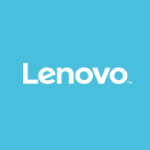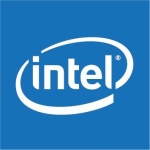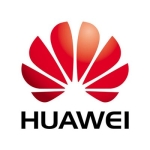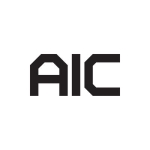How has it helped my organization?
I think the biggest driving factor for the bank is the cost, the cost-performance profile, it's better than anything else.
If you virtualize, Power hardware allows you to oversubscribe CPUs, and we take a big advantage of that for the bank. We save the bank millions of dollars by oversubscribing, because we have probably 700 DevOp servers, where they develop software. The developer might have 40 or 50 servers. They don't run them all at the same time, maybe three or four of them do. So we give those 40 or 50 servers just a couple of CPUs. We way oversubscribe. In fact, IBM-ers raise their eyebrows when we tell them our oversubscription rate.
What is most valuable?
The virtualization. Power was the first solution to have it. Now everybody does virtualization, like VMware, etc. But Power was there a long time before everybody else.
We virtualize everything, we're about 95% virtual. The virtualization and the quality you get from it is one reason we like the solution.
What needs improvement?
Regarding new features, we like where it's going. I really can't think of something newer that they are not currently working on.
Except for Power on Linux. The licensing for software products, including IBM's products - it costs you more to run Linux on Power than it does AIX. That's something I would like to see them improve. We would like to go to Power Linux, but all the software that we are using - and I'm talking like IBM software, like Webster - they don't let you oversubscribe the software. It's not cost effective.
If you didn't know better, if you didn't do these things, you probably wouldn't care and you would put Linux on Power. But if you take advantage of some of these real advanced features, for oversubscribing as an example, it's not supported on Linux on Power. So that stops us, in particular, from going that way.
What do I think about the stability of the solution?
Stability is great. The old saying was, you talked about the "five 9s" of reliability. We're at something like seven 9s. We've never really had a major outage.
We've had outages, but it was the network that went down, or a SAN outage, or somebody, a person, pushed the wrong button. But the infrastructure itself, the IBM Power hardware has never failed us.
Buyer's Guide
IBM Power Systems
January 2026
Learn what your peers think about IBM Power Systems. Get advice and tips from experienced pros sharing their opinions. Updated: January 2026.
880,481 professionals have used our research since 2012.
What do I think about the scalability of the solution?
No issues. And we take advantage of that scalability. I have a few frames where we have over 200 servers on a frame.
How are customer service and support?
We have IBM support. We are a big IBM user. In fact, we use their support for Middleware. They're excellent.
How was the initial setup?
I'm not a good person to ask. This is what I do. To me it's easy, I think it's easy to learn. I think the one problem new people have is - and this isn't just something that relates to IBM - the phraseology is different. So something in VMware might mean something different in the Power world. The lingo, there's some new jargon, and new acronyms that you have to learn. But once you get around that, you realize this thing is the same as this other thing on another system; just a different word.
What was our ROI?
In terms of a move from version to version, and the return on investment from a move from POWER7 to 8, or from 5 to 6, I would say the software has gotten friendlier, more robust, easier to use, easier to upgrade. I think the advantages you get from going to POWER6, POWER7, POWER8 are a bigger thing than going from AIX 6 to 7.
On the hardware side the upgrades are great. With POWER8 we picked up SMT8, and that made a big improvement. If you have applications that can take advantage of it - we run mostly IBM software - so of course the software is enabled.
What's my experience with pricing, setup cost, and licensing?
The cost model is great. There is so much built in to the technology, that if you know how to use it you can save yourself a lot of money. Again I'll go back to what I said earlier: We're saving millions of dollars on software cost by oversubscribing. I know a lot of other users that don't do that. Either they don't understand how some of the technology works, or they're afraid to try it. All the advanced features that are built into this platform we use.
Which other solutions did I evaluate?
To start out, I actually put the first Power systems in the bank. The first applications we were using, they only ran on Power. There's one application, that we call "wire transfer" - banks use that to transfer money to the Federal Reserve - and it only runs on AIX Power. That's what really got us going. Then, over time people realized it was a better. We used to be an HPE shop and over time we proved that we were better than HPE, and we just retired our last HPE server.
What other advice do I have?
We're on all versions of Power. We just retired a POWER4 box, but we have POWER5, 6, 7, and 8. We have all these versions primarily because we're a bank, and we have a lot of old applications. It's hard to get people to upgrade their applications so we can upgrade their hardware. We use it strictly for AIX.
We're running about 1200 servers right now. I have a couple old POWER5 and POWER6 frames, as I said previously, but most of our stuff is on POWER8. We have about 18 870 enterprise servers, and that is where the bulk of our stuff is. We are trying to get everything over to the newer stuff.
Power uniquely positions our bank in the industry because we are almost 100% virtualized, so we're cloud-ready, if you will. In fact, we view our AIX environment as a private cloud at the bank. That is one of the big things.
And the Power solution is a lot more customizable that many of the others. We have some unique infrastructure things at the bank that it fits perfectly.
In terms of some people saying they want less "green screen," less command line, they're talking about UNIX, and historically UNIX is a command-line type of interface, a text interface. We can do a GUI in AIX, and most people don't use it. In fact, the only time you see a GUI is when people are installing software, because Oracle or DB2 has a GUI install interface, so you have to fire up a GUI.
I think IBM is a leader in the server market. I'm an old guy, back when I got into AIX, the Sun servers - the big Sun 10Ks and 18Ks, the HP Superdomes - those were all the enterprise servers, those were the servers of choice. Then came Power AIX, now they're number one. There is no more Solaris. HPE is struggling, they finally quit making their own hardware. They are doing x86. The Power hardware is just so much better than x86 hardware.
Disclosure: My company does not have a business relationship with this vendor other than being a customer.










